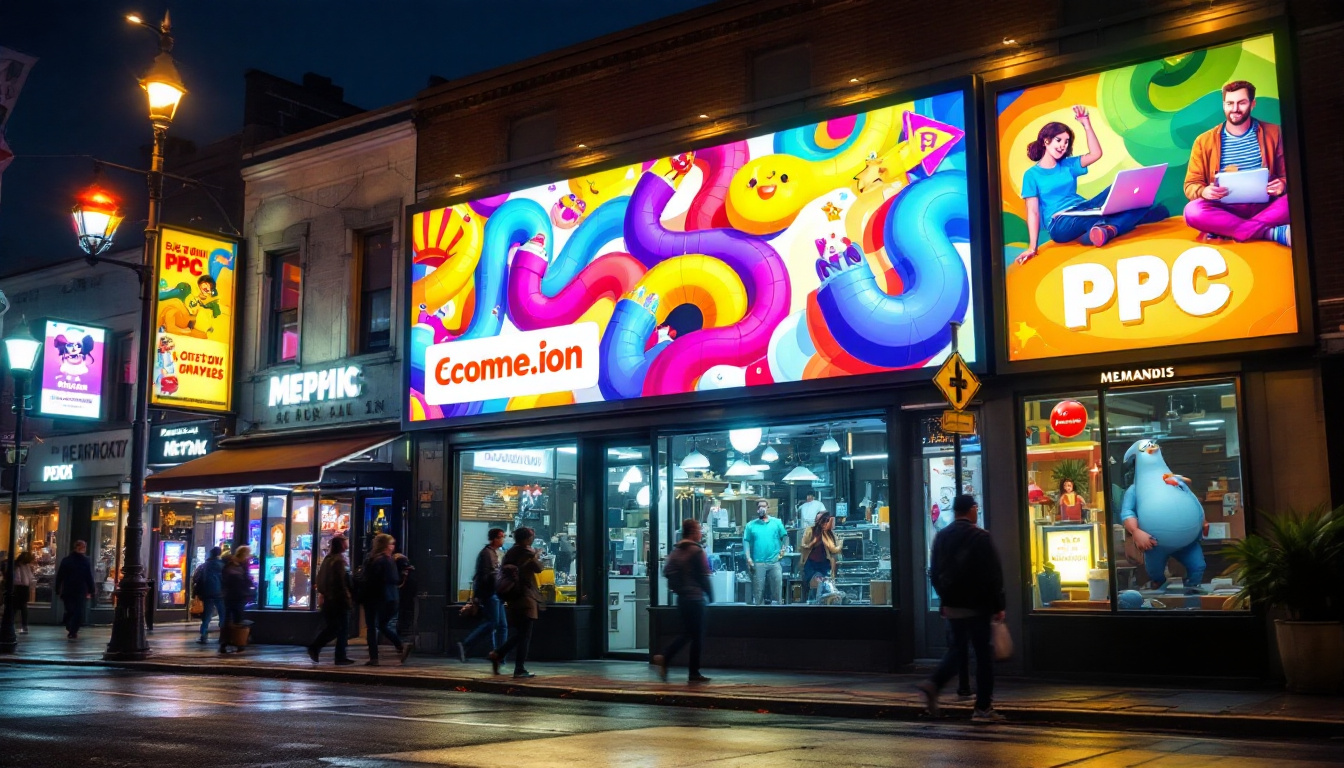Top PPC FAQs Answered for Memphis, TN Businesses

Pay-Per-Click (PPC) advertising has become a crucial component for businesses looking to establish an online presence and attract potential customers. In Memphis, TN, local businesses are increasingly seeking clarity on PPC to leverage its benefits effectively. This article answers some of the most frequently asked questions regarding PPC, focusing on its importance, functionality, and the best practices for implementation.
What is PPC and how does it work?
PPC stands for Pay-Per-Click, a model of online advertising where advertisers pay a fee each time one of their ads is clicked. Essentially, it's a way to buy visits to your site rather than earning them organically. The most common platforms for PPC ads are search engines like Google, Bing, and social media outlets like Facebook and Instagram. This model allows businesses to gain immediate visibility and traffic, which can be particularly beneficial for time-sensitive promotions or new product launches.

In a typical PPC campaign, an advertiser bids on keywords that are relevant to their business. When users search for these keywords, the search engine displays the ads from the highest bidders, sometimes accompanied by Quality Score ratings based on the ad's relevance and the landing page quality. This system not only helps in driving targeted traffic but also ensures that users see ads that are pertinent to their interests, enhancing the overall user experience. Additionally, PPC campaigns can be finely tuned to target specific demographics, locations, and even times of day, allowing businesses to reach their ideal customers more effectively.
This bidding system ensures that businesses can compete for visibility against larger corporations, making it accessible for local Memphis businesses to be seen by their targeted audiences. By leveraging local keywords and focusing on community-driven campaigns, smaller enterprises can carve out a niche for themselves in the competitive digital marketplace.
How does the bidding process work?
The bidding process involves selecting keywords that potential customers might use when searching for the products or services you offer. Advertisers then set a maximum bid they are willing to pay per click. This is where competition comes into play; if multiple advertisers bid on the same keyword, the highest bid does not always guarantee the top position because the Quality Score also influences the ad's rank. This means that a well-crafted ad with a relevant landing page can outperform a higher bid that lacks quality, emphasizing the importance of both financial investment and strategic planning.
Understanding the intricacies of the bidding process can help local businesses optimize their campaigns to achieve better placements and, ultimately, higher conversion rates. Moreover, advertisers can use tools such as A/B testing to experiment with different ad copies and landing pages, allowing them to refine their approach based on real-time data and performance metrics. This iterative process not only enhances the effectiveness of PPC campaigns but also fosters a deeper understanding of customer behavior and preferences.
What are some key PPC terminologies?
Before diving into PPC, it's essential to familiarize yourself with some key terms such as click-through rate (CTR), cost-per-click (CPC), and return on ad spend (ROAS). These terms provide insight into the effectiveness of PPC campaigns and help businesses evaluate their performance accurately. For instance, a high CTR indicates that your ad is resonating well with your audience, while a low CPC suggests that you are efficiently managing your budget.
Additionally, understanding terms like impression share and ad rank can further enhance your PPC strategy. Impression share measures the percentage of times your ad is shown compared to the total number of eligible impressions, while ad rank determines your ad's position on the search results page. By keeping track of these metrics, businesses can make informed decisions about their bidding strategies and budget allocations, ultimately leading to more successful advertising outcomes.
Why is PPC important for local businesses?
PPC advertising is particularly beneficial for local Memphis businesses due to its targeted approach. Unlike traditional advertising methods, PPC allows businesses to reach specific demographics based on location, interests, and search behavior. This can significantly enhance brand visibility within the local community. By focusing on local keywords and phrases, businesses can connect with customers who are actively searching for their products or services, creating a direct line of communication that is both efficient and effective.
Furthermore, PPC provides immediate results. Once the campaign is live, ads can start appearing almost instantly, driving traffic to websites and increasing the chances of conversions. For small businesses without a robust online presence, this is a game-changer. The ability to quickly test different ad copies and landing pages means that local businesses can refine their strategies in real-time, optimizing their campaigns to ensure the best possible return on investment.
Increased Visibility in Competitive Markets
Memphis is a thriving market with diverse industries, and standing out can be daunting. Through PPC, local businesses can rank higher in search results, gaining visibility that would otherwise require extensive organic SEO efforts. This is particularly crucial in competitive sectors such as hospitality, retail, and services, where the first few search results often capture the majority of clicks. By leveraging PPC, businesses can ensure they are front and center when potential customers are making decisions.
Moreover, PPC campaigns can be easily adjusted based on performance metrics, allowing businesses to maximize their marketing budget efficiently. With tools that provide insights into click-through rates, conversion rates, and customer engagement, businesses can pivot their strategies to focus on what works best. This agility not only saves money but also enhances the overall effectiveness of marketing efforts, making it easier to stay ahead of competitors.
Targeting Local Audience
PPC campaigns can be tailored to target specific geographic areas, ensuring that Memphis residents see the ads. This targeted approach minimizes waste and maximizes engagement with individuals who are more likely to convert. By utilizing geo-targeting features, businesses can reach potential customers in specific neighborhoods or even around their physical locations, increasing foot traffic and local sales.
Additionally, the ability to incorporate local language and cultural references into ad copy can resonate more deeply with the target audience. This level of personalization not only fosters a connection with potential customers but also builds trust and loyalty. Local businesses can highlight community involvement, special promotions, or events that appeal specifically to Memphis residents, further enhancing their relevance in the local market.
How to select the best PPC platform?
Selecting the right PPC platform is crucial for the success of your advertising efforts. Several platforms offer distinct features and target audiences, making it imperative to choose one that aligns with your business goals.
- Google Ads: As the most prominent search engine, Google Ads reaches a vast audience and provides advanced targeting options.
- Bing Ads: Although smaller in reach, Bing can be cost-effective and may target a slightly different demographic.
- Facebook Ads: With extensive targeting capabilities based on user interests and behaviors, Facebook is excellent for building brand awareness.
- Instagram Ads: For businesses with engaging visual content, Instagram can help capture attention with eye-catching graphics.
Evaluating the strengths and weaknesses of each platform is essential to ensure you are leveraging your advertising budget effectively.
Consider Your Target Audience
When selecting a PPC platform, consider where your target audience spends their time online. For instance, if your customers are primarily on social media, platforms like Facebook and Instagram are ideal choices.
Conducting research on your target market can help determine the best avenue for your PPC campaigns.
Budget Considerations
Each platform has different cost structures, so it's essential to evaluate your budgetary constraints and the potential return on investment. Google Ads might have a higher entry cost due to competition, while other platforms may provide greater initial flexibility.
What are the costs associated with PPC?
The costs associated with PPC can vary significantly based on factors such as industry competition, keyword selection, and campaign goals. Generally, costs are calculated on a cost-per-click (CPC) basis, meaning that businesses pay only when users click on their ads.

On average, businesses can expect to pay between $1 and $2 per click on the Google Search Network. However, competitive industries may see much higher rates, making keyword research vital for budgeting purposes.
Creating a Budget Strategy
Establishing a clear budget strategy is essential for maximizing the effectiveness of your marketing spend. Businesses should set a daily budget based on their overall marketing goals and the projected return on investment.
Additionally, setting bid limits for specific keywords can prevent overspending and maintain cost efficiency throughout your PPC campaigns.
Tracking and Adjusting Costs
Regularly tracking costs and adjusting based on campaign performance can enhance the effectiveness of your PPC strategy. Employ tracking tools to monitor clicks, conversions, and overall spending—this way, you can optimize your approach based on real-time data.
How to measure the success of your PPC campaigns?
Measuring the success of PPC campaigns involves monitoring key performance indicators (KPIs) that reflect your objectives. Some essential KPIs include click-through rate (CTR), conversion rate, and cost per acquisition (CPA).
Utilizing analytic tools, such as Google Analytics, can help local businesses gain insights into user behavior and campaign performance. Tracking user interactions post-click, including bounce rates and time spent on the site, provides valuable data for assessment and improvement.
Setting Clear Objectives
Before initiating a PPC campaign, it's vital to set clear, measurable objectives. Whether your goal is to increase sales, generate leads, or boost brand awareness, defining these targets allows for more accurate measurement of success.
Optimization Based on Insights
Once you've gathered performance data, use it to optimize your campaigns. This could involve adjusting bids, refining keywords, or reworking ad copy to enhance engagement and conversion. The PPC landscape is dynamic, and continual optimization is vital for keeping pace with changes.
In conclusion, understanding PPC is vital for Memphis businesses looking to succeed in today’s digital landscape. By grasping the mechanics behind PPC, its importance for local advertising, selection of the right platforms, cost implications, and success measurement, businesses can leverage this powerful tool to enhance their marketing strategies effectively.

As a Google Ads expert, I bring proven expertise in optimizing advertising campaigns to maximize ROI.
I specialize in sharing advanced strategies and targeted tips to refine Google Ads campaign management.
Committed to staying ahead of the latest trends and algorithms, I ensure that my clients receive cutting-edge solutions.
My passion for digital marketing and my ability to interpret data for strategic insights enable me to offer high-level consulting that aims to exceed expectations.





























